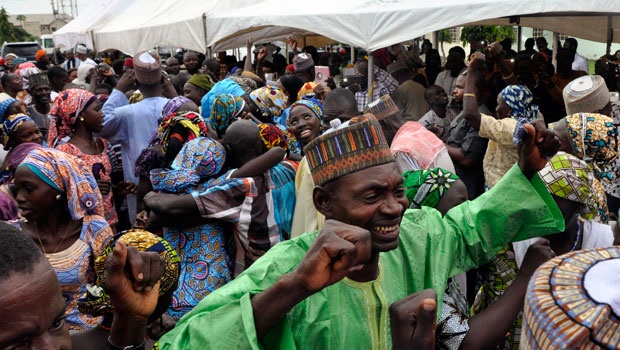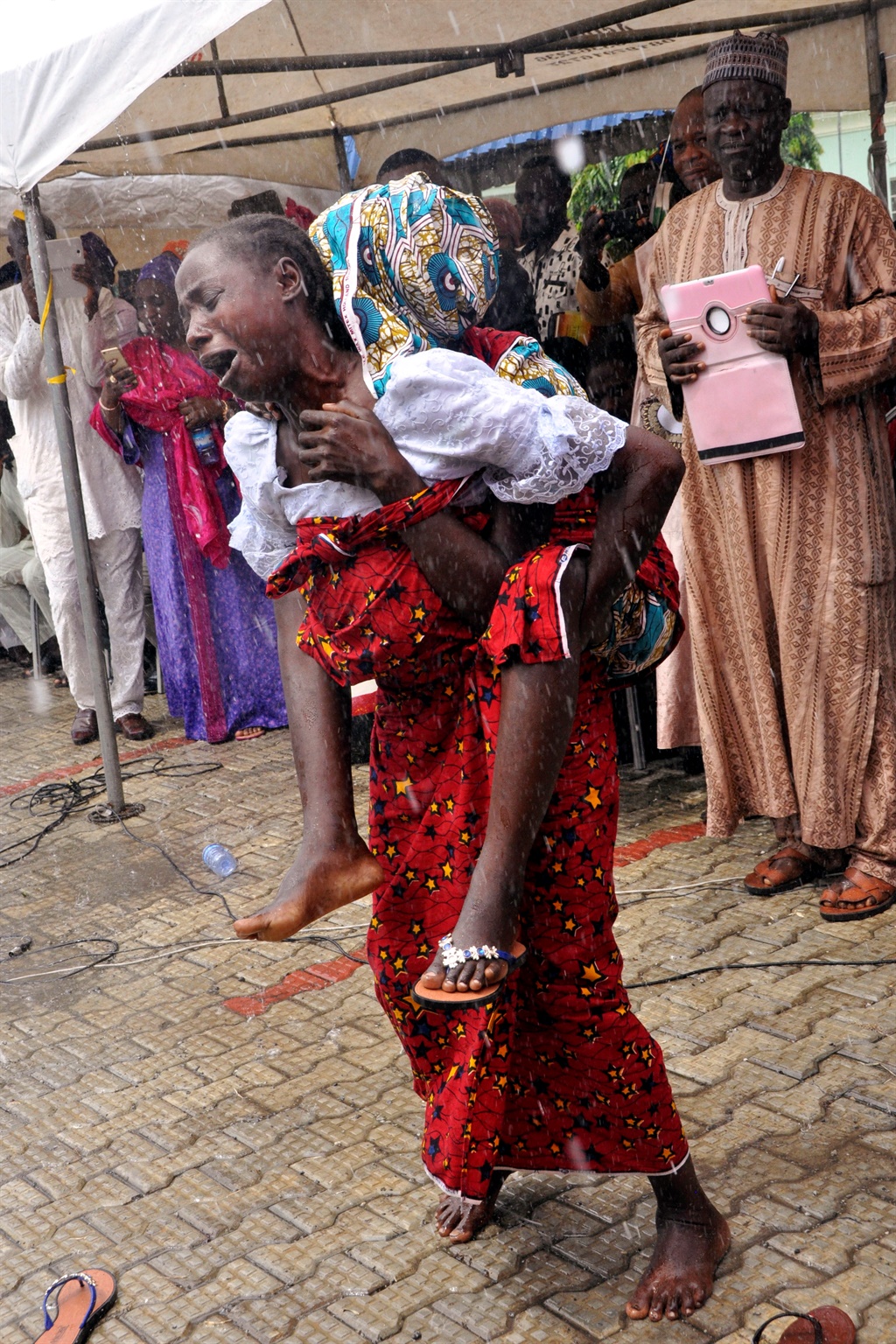
In April of 2014, 276 schoolgirls were abducted in the middle of the night from their government boarding school dorms by jihadist group, Boko Haram.
Shortly after their initial capture, some of the girls escaped. Last week, Reuters reported, after extensive negotiations by Switzerland and the International Red Cross, 21 girls have been released by the militants. Yet 190 still remain in captivity.
Garba Shehu, a spokesman for Nigerian President Muhammadu Buhari, said that negotiations will continue to free more girls.
The Guardian reports that many of the girls were taken to be “sold” as wives to militant members, whereas others were systematically raped and forced to do hard labour. Others believe they are being indoctrinated to become part of the fringe group, to act as suicide bombers in planned future terror operations.
Known as the Chibok girls (since they were taken from the northern Nigerian town of Chibok), this case of mass kidnapping has gripped the world for more than 2 years. The #BringBackOurGirls campaign, championed and mobilised by US first lady Michelle Obama, called for the girls’ release on social media. Millions joined in on this campaign at first, yet with limited updates on the girls’ situation, this has since petered out.
Read more: Have we forgotten about the missing Nigerian girls since it stopped trending?
Shunned by their communities – seen as extension of insurgence
Looking as far back as Nazi Germany, the former Yugoslavia and Libya, rape, kidnapping and sexual perversion have always been used as a tool of war.
Many victims, upon return to their communities, face scrutinisation, isolation and exclusion - as was evident in the DRC (formerly known as the world’s rape capital) civil war. Women Under Siege Project notes that a 2012 study conducted in Congo by our own local Sonke Gender Justice Network, in collaboration with Brazilian non-profit, Promundo, found that 43% of men surveyed agreed with the following statement: “A man should reject his wife when she has been raped.”
And this seems to be the harsh reality. According to this article called Victimized twice: DRC women rebound after war, DRC women are often “shunned by their husbands and kicked out of their homes after being sexually abused. The cycle can go on for generations”. In fact, The Independent ran a story about a woman who returned home (pregnant with a terrorist’s baby) after being kidnapped by Boko Haram.
She returned to her husband, yet the stigma of being a fighter’s “wife” or returning with a child of an insurgent is so overwhelming that her husband told her to abort the child. Because abortion is illegal in Nigeria, she tried to flush the foetus using chemicals. She managed to keep her womb and execute a successful abortion, but her husband still opted to divorce her.
No one seems to trust those who have returned.
‘‘Memories of wartime atrocities, like all memories, are local; they are embedded in the psyche of individual survivors and witnesses and, through the process of retelling and memorialization, they are deposited in the collective memory of the community,’’ writes Alllison Ruby Reid-Cunningham, in Rape as a Weapon of Genocide, as she explores a community’s reaction to victims of sexual assault during war.
The Independent notes that Boko Haram – who, yes, is more deadly, violent and hateful than ISIS – likely deploys more female suicide bombers than any other terrorist group in the world, which is one of the main reasons why women are not trusted and are marginalised upon return. A new report by International Alert and Unicef entitled Bad Blood also found that women who return are seen as indoctrinated by the enemy.
But will it be different for the Chibok girls?
The LA Times argues that there is a massive difference between the kidnapped Chibok girls and the many others who have suffered under this militant group, “The Chibok girls were flown to Nigeria’s capital, where a team of doctors and trauma counsellors waited (upon their release). Other abductees said they were placed in military detention camps and interrogated before being released into displacement camps.”
This, of course, is very much due to the international attention paid to this case and the fact that it was a mass kidnapping of young school girls. However, the transition from insurgent’s “wife” to a “regular” Chibok schoolgirl, most likely, will still lead to double victimisation, despite the governmental support given in this case.
The Guardian stresses that abuse is often a symptom of a patriarchal society where women are still seen as lesser. Which is very much the case in Nigeria today, and especially in rural areas. Double victimisation is thus almost normalised as women are not perceived as equal players with equal amounts of agency.
Perceived as easily coerced, they are often the scapegoat. Men are not blamed for raping; rather women are asked why they didn’t prevent their own abuse.
So, in fact, it's almost a "logical" conclusion that trust, particularly, will be an issue upon the Chibok girls' return. And surprisingly, it's almost not as much about the fact that they were raped, but that because they are so "inherently weak", they have been "changed" by the enemy in an "irreversible" way. And now they pose a "threat" to their community because of this "change".
Kim Toogood, a senior peacebuilding advisor for Nigeria at the NGO International Alert, perhaps said it best in her prediction on NPR, “…once they come home and they're standing next to you in the line for the food, there's a sense of fear that's inside you, whether you know that that person was taken without their choice or they went willingly, there's just a natural fear that kind of comes with the territory of living side by side with people you're not quite sure you can trust anymore.”
Read more:




 Publications
Publications
 Partners
Partners











